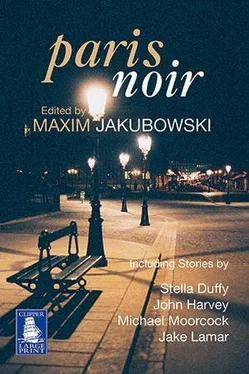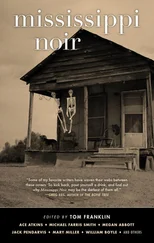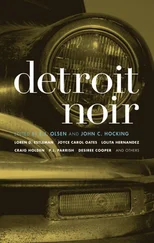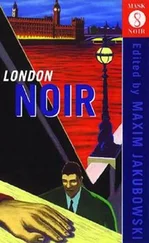Maxim Jakubowski - Paris Noir
Здесь есть возможность читать онлайн «Maxim Jakubowski - Paris Noir» весь текст электронной книги совершенно бесплатно (целиком полную версию без сокращений). В некоторых случаях можно слушать аудио, скачать через торрент в формате fb2 и присутствует краткое содержание. Жанр: Детектив, на английском языке. Описание произведения, (предисловие) а так же отзывы посетителей доступны на портале библиотеки ЛибКат.
- Название:Paris Noir
- Автор:
- Жанр:
- Год:неизвестен
- ISBN:нет данных
- Рейтинг книги:3 / 5. Голосов: 1
-
Избранное:Добавить в избранное
- Отзывы:
-
Ваша оценка:
- 60
- 1
- 2
- 3
- 4
- 5
Paris Noir: краткое содержание, описание и аннотация
Предлагаем к чтению аннотацию, описание, краткое содержание или предисловие (зависит от того, что написал сам автор книги «Paris Noir»). Если вы не нашли необходимую информацию о книге — напишите в комментариях, мы постараемся отыскать её.
Edited by Maxim Jakubowski, the stories range from quietly menacing to spectacularly violent, and include contributions from some of the most famous crime writers from both sides of the Atlantic, as well as the other side of the Channel.
Paris Noir — читать онлайн бесплатно полную книгу (весь текст) целиком
Ниже представлен текст книги, разбитый по страницам. Система сохранения места последней прочитанной страницы, позволяет с удобством читать онлайн бесплатно книгу «Paris Noir», без необходимости каждый раз заново искать на чём Вы остановились. Поставьте закладку, и сможете в любой момент перейти на страницу, на которой закончили чтение.
Интервал:
Закладка:
Mina tried to open her mouth. Little white lights danced in front of her and she saw it all so clearly now. The Feldgrau uniform and the diamonds scattered in the blood they hadn’t bothered to hide. She clutched her pocket and the little lights faded.
Passers-by paused on the pavement. Someone pointed. A flic , one of the passers-by, stopped and ran towards the old woman sprawled on the cobbled street. The flic knelt down and saw the woman’s twisted broken neck. He felt for her pulse. Nothing. Clutched in her hand was an odd brown book. On the opened page he saw faded old-fashioned German script – Hans Gruber, Blut-Gruppe O, Feldwehel , and a sepia photo of a young man stamped over with an eagle clutching a wreath surrounding a swastika. And creased in the fold a yellowed paper with what looked like a German poem and the words Mina je t’aime.
PARIS CALLING by JEAN-HUGUES OPPEL
Paris is calling for help, gentlemen…’
The suits with matching ties and pocket handkerchiefs sit around three sides of the boardroom table, stony faced. The only woman present (suit-blouse-neckscarf- not matching, for ultimate chic) greets the opening remark addressed solely to the men with a resigned shrug. She’s more than used to the all-but-automatic boorishness of her peers, whatever their position in the social or political – above all political -hierarchy.
The speaker seems to notice his omission. By way of excusing himself, he grimaces vaguely in the woman’s direction before going on, his torso bending forward slightly as he rests his fists on the table below him like pillars under a viaduct.
His sharp gaze took in his audience, face by face, before he uttered his first words, a way of quickly making acquaintance to avoid the tiresome ritual of introductions. No one avoided his eye. Someone coughed slightly, breaking the graveyard silence that had prevailed until then in the boardroom of a sumptuous building in the ministerial district.
No minister is present. They are all represented by their chiefs of staff or their deputies. The woman with the offbeat scarf hails from Foreign Affairs.
The speaker has the unmistakeable air of a secret service mole. Yes, Paris is calling for help, he repeats, enunciating each syllable, adding, after a short pause for breath, that as he speaks, right here, right now, it’s no longer a question of deciding if the capital’s terrible cry is justified or not, but of understanding why we remain deaf to it still today.
The woman with the scarf discreetly admires the speaker’s subtle rhetoric, which somehow makes ‘we’ sound like ‘you’. With a jerk of the chin, the speaker indicates the file handed to each person before they entered the room, a file whose contents will perhaps help unblock a few ears in high places. This hardbound file contains: a thick pamphlet of spiral-bound A4 pages, in small print to save paper; a series of colour and black-and-white photographs, numbered in the chronological order in which they were taken; a CD-ROM containing the report and photographs in current software formats for computer nerds incapable of reading anything – words or figures – unless it’s on a screen.
The speaker reminds anyone who might not know that a study’s been requested from his serv… from the organisation he works for. The slip draws a few ironic smiles from the assembled audience. Next the speaker announces that the summary of this study can be found in the written report which details all the sociological issues. The photographs are there to illustrate certain aspects of the phenomenon, the better to capture the imaginations of superiors whose minds are sometimes on other things; with a decent budget, they might have had animated images and stereo sound too.
In several shots, a casual observer might nonetheless note at first glance that a burning car in the night is a beautiful thing.
There were hundreds of them in the streets and in residential car parks in the autumn of last year, and in all four corners of the country. The fire had started at the gateways to the capital, following the umpteenth tragic news report of suburban youths pitted against police officers. The fire in the city had lasted a month.
A month of riots.
Riots that were predictable. The speaker would go even further, weighing his words: they were so predictable they should never have happened at all.
‘Business good, Momo?’
‘Well yeah, I s’pose, sir, but shit, it’s been better! Hash doesn’t pay like it used to, and I’m not even talking about the stuff that falls off the back of a van, hi-fis and TVs… Prices are rock bottom! Lucky there’s still mobiles to make a bit of profit on, otherwise business would be a total disaster!’
‘So it’s lucky I turn up from time to time, huh?’
‘Don’t I know it, sir. You pay well but times are hard and I’m the family breadwinner, so you’ve got to understand I’m putting up prices for information…’
‘You’re on the ball, aren’t you! Life’s tough, especially for the poor, or didn’t you know? People have got no money now, Momo, so they’re going back to basics; first things first and the small stuff goes out the window, see?’
‘I don’t see anything when you start talking like the class brainbox!’
‘Because you went to school, I suppose? It’s true you can count…’
‘Of course!’
‘People are skint so they haven’t got the money to buy your junk any more. D’you get it now, Momo?’
‘Yes sir, I get it. But it stinks, if you ask me, because if that’s true and it goes on like this any longer, things’ll stay in the shit and we’ll have to find ways out of it so we can put food on the table, see?
‘If not, I’m telling you, all hell’s going to break loose on the estates.
‘The shit’s really going to hit the fan, sir.’
The Prime Minister’s chief of staff is disconcerted by the speaker’s last assertion, delivered as if it were gospel truth: was he accusing the government of incompetence? Or worse, laxity? The Minister of the Interior’s right-hand man immediately weighs in, fearing a dirty trick by opponents hidden even among those loyal to the majority party.
The speaker raises a conciliatory hand. He’s accusing no one in particular. He’s merely making an observation.
An observation that someone, anyone, should have made ages ago: the accumulation of social problems and architectural aberrations, the increased poverty resulting from the continued rise in unemployment and the growing precariousness of remaining jobs, of deliberately badly controlled illegal immigration and thus of more-or-less latent racism, which will eventually lead to the ghettoisation that automatically acts as a breeding ground for religious fanaticism, and… Need he go on? This has been the state of affairs for a good half century, deteriorating almost daily, depending on which party’s in power, so we shouldn’t pretend we just discovered the scale of the disaster upon opening our eyes this morning.
Undisguised anxiety is painted on most of the faces around the long table. Some of the speaker’s words were unpleasant to hear, but more than that, they’ve prompted enormous doubts as to the reality on the ground. Several hands go up, requesting permission to speak.
The first question asked, relating to the allegedly ‘badly controlled’ illegal immigration, in fact sums up almost all the rest.
The speaker could have bet on it.
He restricts himself to reminding everyone that if there were available jobs elsewhere, no one would willingly leave their country and their family to come and sweat blood and tears in France. And if these jobs were properly remunerated, unemployed nationals would snap them up, but since the pay offered is worse than laughable, they’re reserved for a docile workforce that’s easily replaceable and thus exploitable because it’s outside the law. Illegal workers fulfil these criteria perfectly.
Читать дальшеИнтервал:
Закладка:
Похожие книги на «Paris Noir»
Представляем Вашему вниманию похожие книги на «Paris Noir» списком для выбора. Мы отобрали схожую по названию и смыслу литературу в надежде предоставить читателям больше вариантов отыскать новые, интересные, ещё непрочитанные произведения.
Обсуждение, отзывы о книге «Paris Noir» и просто собственные мнения читателей. Оставьте ваши комментарии, напишите, что Вы думаете о произведении, его смысле или главных героях. Укажите что конкретно понравилось, а что нет, и почему Вы так считаете.











